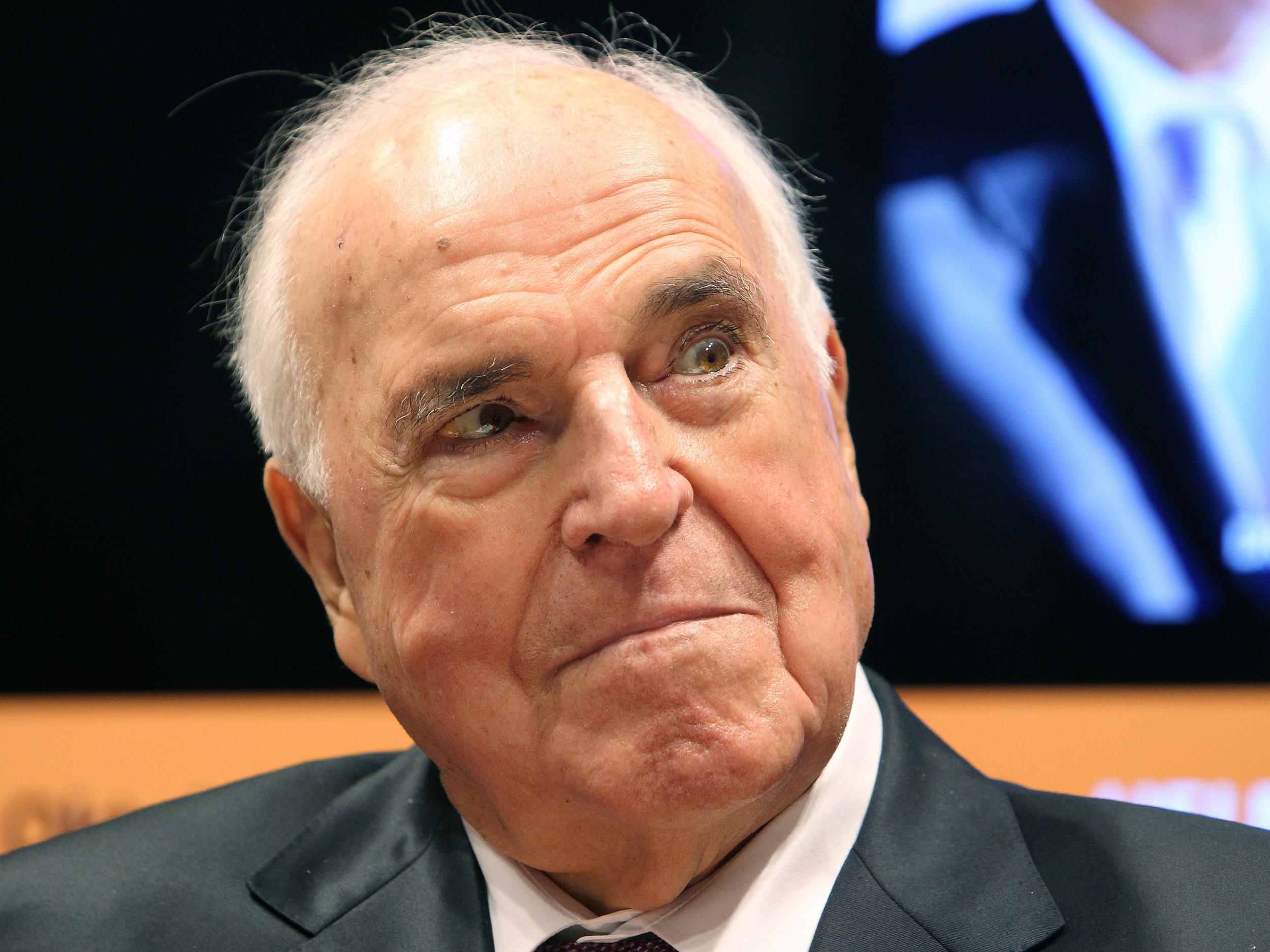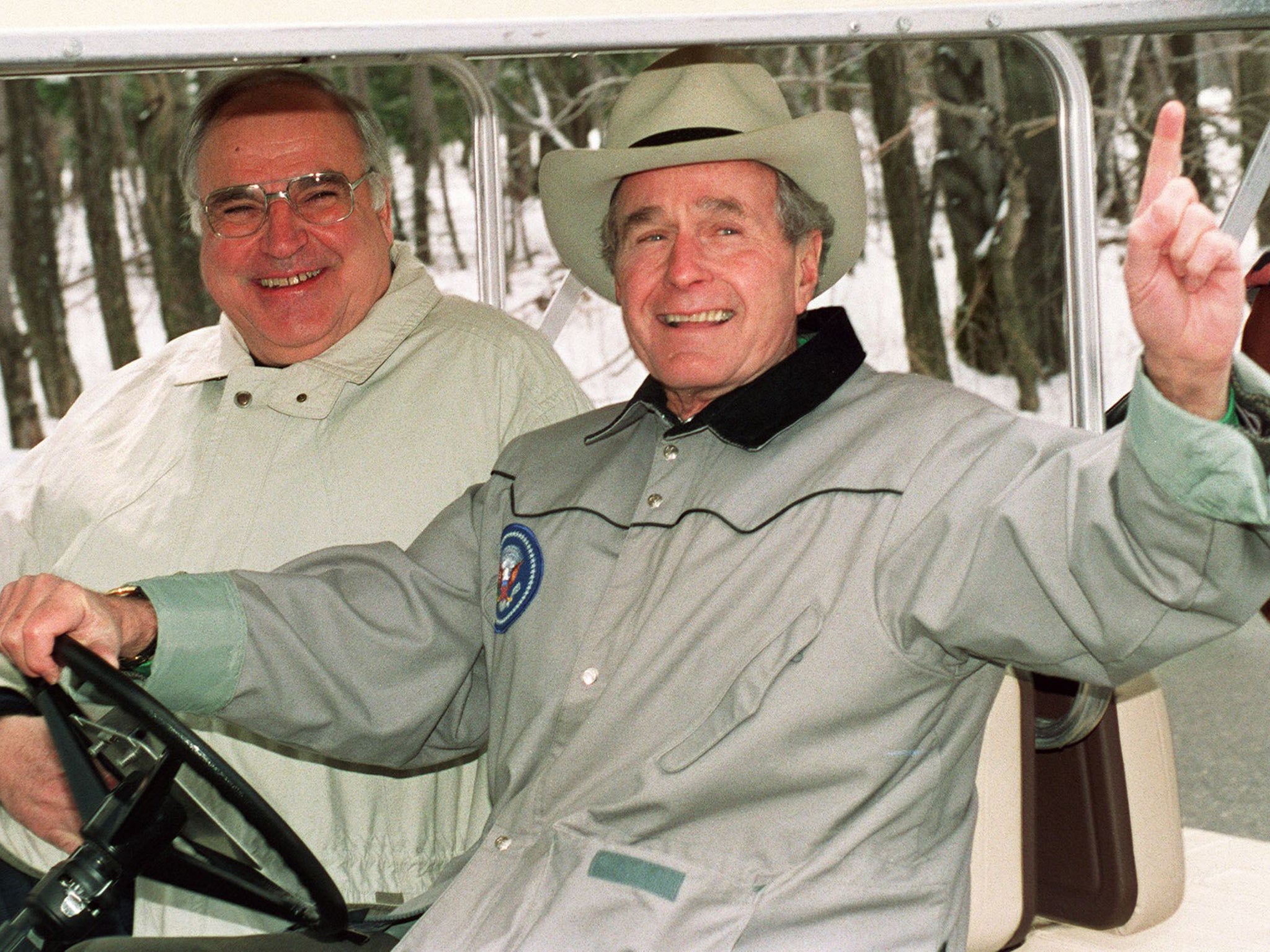Helmut Kohl dead: Longest-serving German chancellor since Bismark dies aged 87
‘Father of German reunification’ was a driving force for a united Europe and the creation of the euro

Helmut Kohl, who served as German chancellor from 1982 to 1998, and presided over the end of the Cold War, has died at the age of 87.
The so-called “father of reunification” was modern Germany’s longest serving chancellor, coinciding with the tearing down of the Berlin Wall that separated the communist East from the capitalist West.
Former US President George Bush Snr once described him as the most important European leader of the late 20th century.
A politician for most of his adult life, Mr Kohl was chancellor of then West Germany between 1982 and 1990, and of the reunified Germany between 1990 and 1998.
As leader of the centre-right Christian Democratic Union party, his 16-year tenure was the longest of any German chancellor since Otto von Bismarck.
“We are in sorrow,” the party said, announcing his death on Twitter.
Born in 1930 to conservative, Catholic parents, he was obliged to join the Hitler Youth in 1940 at the age of just ten.
He dedicated his political life to rebuilding Germany within a united Europe following the Second World War.
As chancellor of a unified Germany, he made sure the country was at the heart of the European Union and was a driving force behind the creation of the euro, enjoying a particularly close relationship with French President Francoise Mitterand.

His first wife Hannelore committed suicide in 2001, apparently because of a very rare allergy to light which forced her to live in darkness. The couple had two sons, Walter and Peter.
He became wheelchair-bound following a fall in 2008, the same year he married his second wife, Maike Richter, 35 years his junior.
He died in Ludwigshafen, Germany, the Rhine port city where he was born.
Tributes began flooding in from his former political allies.
Former US President George HW Bush said he and his wife Barbara “mourn the loss of a true friend of freedom, and the man I consider one of the greatest leaders in post-war Europe”.
“Working closely with my very good friend to help achieve a peaceful end to the Cold War and the unification of Germany within Nato will remain one of the great joys of my life,” he added in a statement. “Helmut was a rock.”
Gerhard Schroeder, Kohl’s successor as chancellor, called him a “great patriot and European... The unification of our country and our continent will be linked to his name for all time.”
In Brussels, European flags were lowered to half mast in tribute.
European Commission President Jean-Claude Juncker, who served as Luxembourg’s prime minister while Kohl was in office, tweeted: “Helmut’s death hurts me deeply. My mentor, my friend, the very essence of Europe, he will be greatly, greatly missed.”
His dream of a unified Germany was realised in November 1989 with the fall of the Berlin Wall, despite resistance from other world leaders including Margaret Thatcher and Soviet leader Mikhail Gorbachev.
Post-unification, he won the backing of voters in the former East Germany by promising them “flourishing landscapes”.
Shortly after leaving office, Mr Kohl’s legacy was tainted by a financing scandal in his party, now led by Chancellor Angela Merkel.
Mr Kohl mentored Ms Merkel early in her career, appointing her to her first ministerial post.
European leaders said the EU must build on his legacy.
Italian EU affairs minister Sandro Gozi tweeted: “We have lost a great leader, above all a European with vision and courage. We missed him and we will miss him. We must follow his example to relaunch the EU.”
German Foreign Minister Sigmar Gabriel paid tribute to a “great German statesman and above all a great European”.
Additional reporting by Reuters
Join our commenting forum
Join thought-provoking conversations, follow other Independent readers and see their replies
Comments
Bookmark popover
Removed from bookmarks